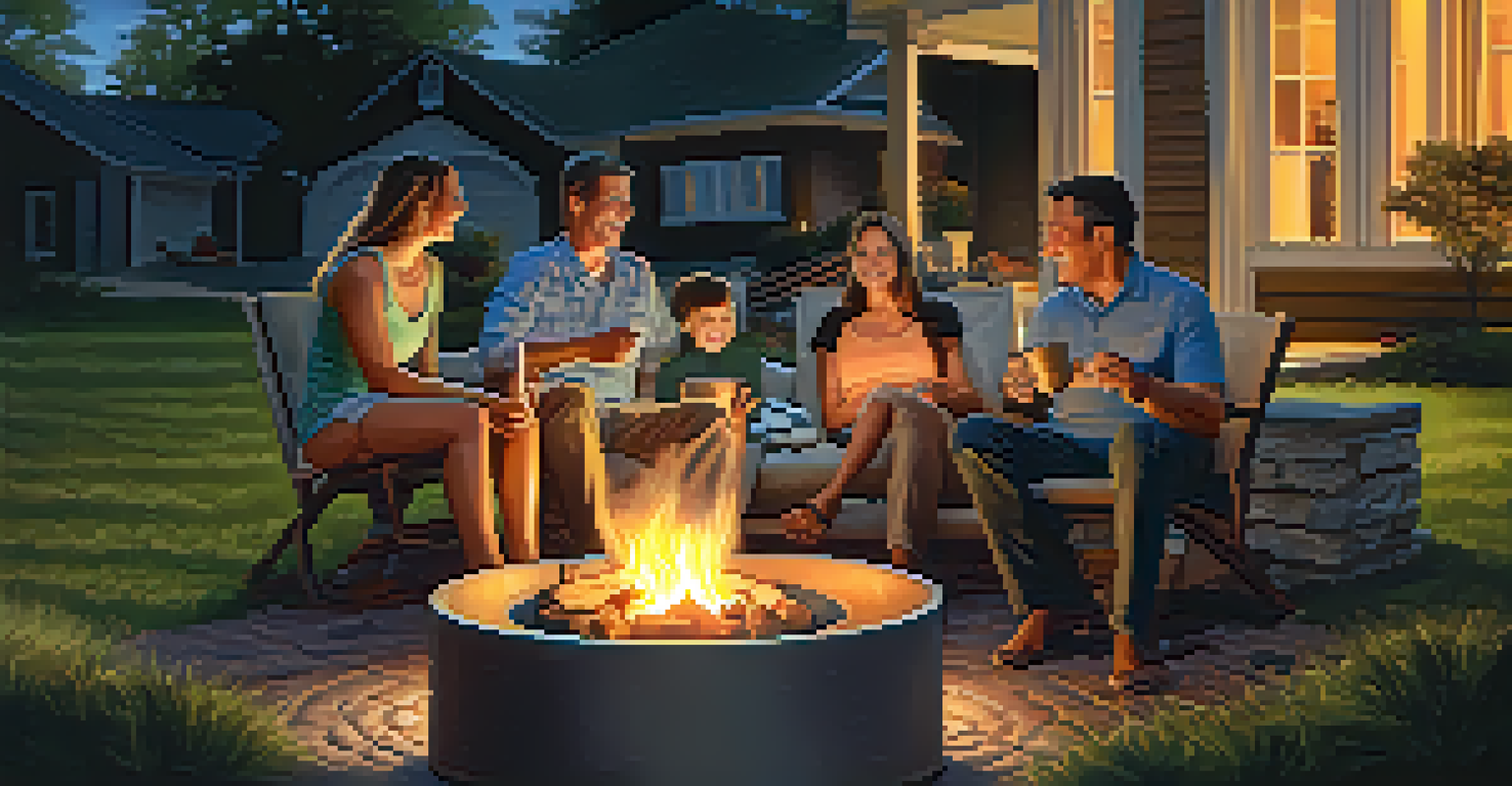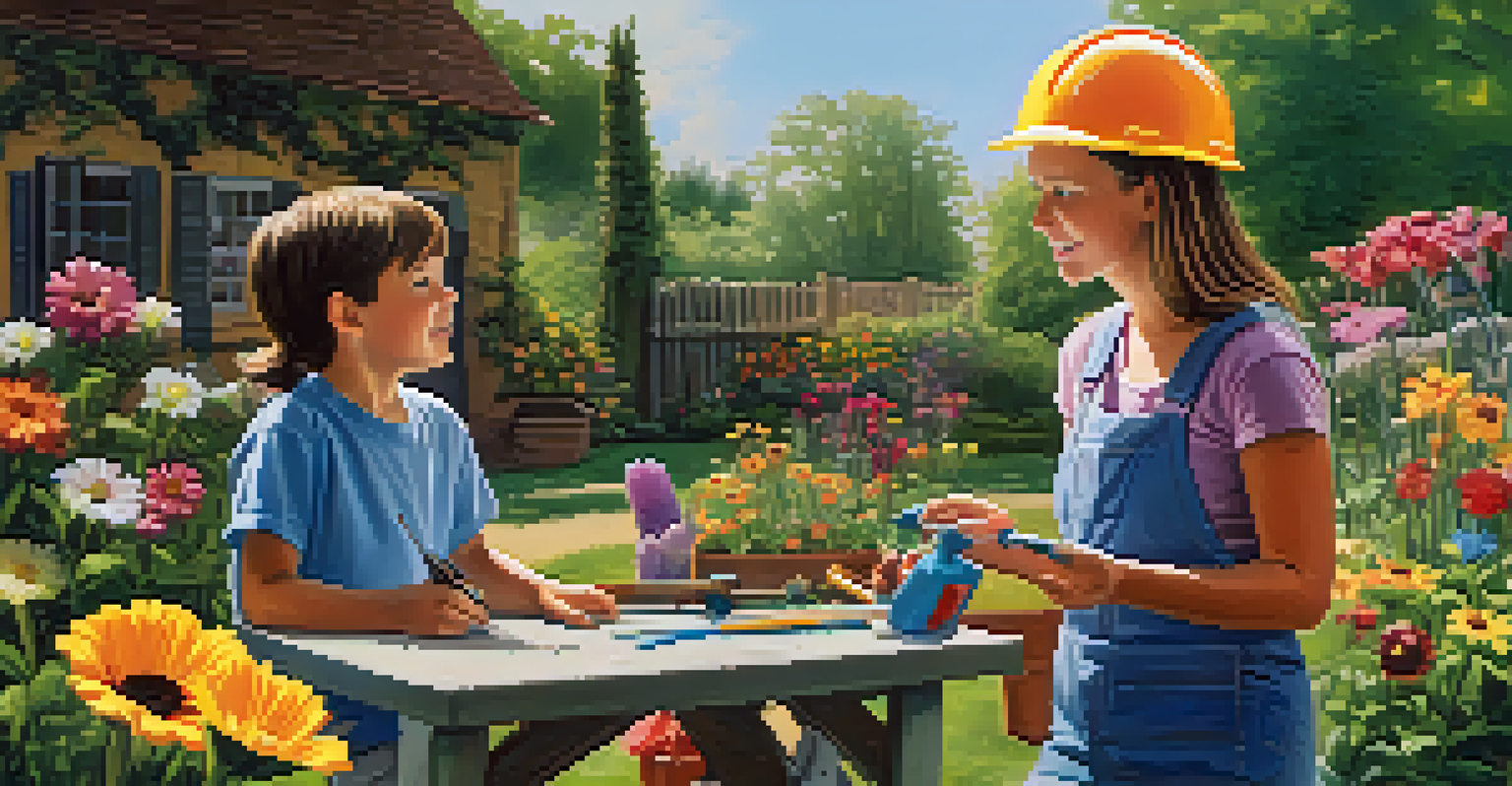Essential Outdoor Safety Tips for Homeowners

Understand Your Property's Unique Hazards
Every property has its own set of risks, whether it's steep slopes, bodies of water, or nearby wildlife. Take time to walk your property and identify potential hazards. This proactive approach can help you address issues before they become serious safety concerns.
An ounce of prevention is worth a pound of cure.
For instance, if you have a pool, consider putting up a fence or installing a pool cover to prevent accidents. Similarly, if there are large trees, inspect them regularly for signs of disease or instability. Knowing the specific risks on your property allows you to create a tailored safety plan.
By understanding your property's unique hazards, you can better protect not just yourself, but also your family and guests. Awareness is the first step in ensuring a safe outdoor environment.
Regularly Inspect and Maintain Outdoor Equipment
Outdoor equipment like lawnmowers, grills, and garden tools need regular checks for safety. A quick inspection can prevent accidents that could lead to injuries or property damage. Make it a habit to check your tools before you use them.

For example, ensure that your grill's gas line is intact and that there are no leaks before firing it up for a barbecue. Similarly, make sure that your lawnmower has sharp blades and is free from debris. Regular maintenance not only keeps you safe but also extends the lifespan of your equipment.
Identify Property Hazards
Understanding your property's unique risks allows you to create a tailored safety plan to protect yourself and your loved ones.
Incorporating routine checks into your outdoor activities can save you time and keep everyone safe. A little diligence goes a long way in outdoor safety.
Be Cautious with Fire Pits and Open Flames
Fire pits and open flames can create a cozy atmosphere, but they also pose significant risks if not managed properly. Always make sure your fire pit is at least 10 feet away from structures and flammable materials. This simple step can prevent a small spark from turning into a serious fire.
Safety isn't just a slogan, it's a way of life.
When using your fire pit, keep a bucket of water or a hose nearby just in case things get out of control. Additionally, never leave flames unattended, especially if children or pets are around. Safety should always come first when enjoying outdoor fires.
By taking these precautions, you can enjoy your outdoor space safely while minimizing the risk of accidents. Remember, a little caution goes a long way.
Secure Your Pool Area for Safety
If you're a homeowner with a pool, ensuring its safety is paramount. Install barriers such as fences or gates to restrict access, especially for young children. A locked gate can be a lifesaver when it comes to preventing accidents.
Consider adding pool alarms that alert you if someone enters the water unexpectedly. Regularly check the pool area for slips or falls, especially if there are wet surfaces around. By being vigilant, you can make your pool a safe haven for fun.
Maintain Outdoor Equipment Regularly
Routine inspections of outdoor tools and appliances can prevent accidents and extend their lifespan.
Ultimately, creating a secure pool environment allows everyone to enjoy summer days without worry. Safety in and around the pool should never be overlooked.
Know How to Handle Wildlife Encounters
Living near nature means occasional wildlife encounters, which can be exciting but also dangerous. Familiarize yourself with local wildlife and learn how to react in different situations. For instance, if you see a bear, the best course of action is to stay calm and back away slowly.
Keep your trash secured and avoid leaving pet food outside to deter animals from visiting your yard. Also, educate your family, especially children, about how to behave when encountering wildlife. Understanding these interactions can help prevent dangerous situations.
By respecting wildlife and taking preventive measures, you can enjoy your outdoor space while minimizing risks. Remember, knowledge is key to safety.
Plan for Extreme Weather Conditions
Extreme weather can pose serious risks to homeowners, so it's essential to plan ahead. Make sure you know the weather patterns in your area and prepare accordingly. For example, if storms are forecasted, secure outdoor furniture and check that gutters are clear to prevent flooding.
In winter, ensure that walkways are salted to avoid slips and falls. Also, have an emergency kit ready with essentials like water, food, and flashlights in case of power outages. Being prepared for the unexpected can make a huge difference in your safety.
Teach Kids About Safety
Educating children on outdoor hazards and safety measures empowers them to make responsible choices.
By planning for extreme weather, you not only protect your property but also safeguard your loved ones. Being proactive is always better than being reactive.
Teach Children About Outdoor Safety
Educating children about outdoor safety is crucial for their well-being. Start by explaining the potential hazards around your home, such as sharp tools or slippery surfaces. Use simple language and relatable examples to help them understand.
Incorporate fun activities, like role-playing, to practice safety skills. For instance, you could simulate a wildlife encounter or a fire drill. Making learning engaging can help them remember important safety measures.

By instilling these lessons early on, you're empowering your children to make safe choices outdoors. This knowledge not only keeps them safe but also fosters responsibility.
Always Have a First Aid Kit Handy
A well-stocked first aid kit is an essential item for any homeowner, especially if you spend a lot of time outdoors. Make sure your kit includes band-aids, antiseptic wipes, and any necessary medications. You never know when a minor injury might occur, so being prepared is key.
Consider taking a basic first aid course so you know how to handle emergencies. This knowledge can be invaluable, whether it's a scrape from gardening or a more serious injury. Plus, being equipped with the right tools and skills can boost your confidence in handling outdoor mishaps.
With a first aid kit and some training, you can enjoy your outdoor activities with peace of mind. Safety should always be a priority.